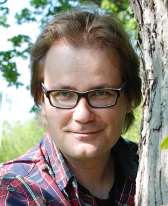A public forum. The Finnish Institute of Bioethics collaborates with people and organizations in bioethics and biolaw both nationally and internationally. In tune with its mission, the Finnish Institute of Bioethics aspires to create an open public forum for all parties interested and involved in bioethical issues. If You are interested in collaborating with the Finnish Institute of Bioethics, we warmly encourage you to get in touch with us using the feedback form.

Ph.D., researcher Heikki Saxén (Chairman of the Board) works as a bioethics researcher at the Faculty of Medicine and Health Technology at Tampere University. During his career, he has established close collaborative ties within international academia in bioethics, especially in the United States. During the academic year 2014–2015 he was a visiting Fulbright Scholar at Harvard T. H. Chan School of Public Health, where his affiliation was extended for the academic year 2015–2016. He has also collaborated with the Center for Bioethics at Harvard Medical School. In addition to these, Heikki has formed close ties with people in other bioethics institutions in the country, such as the Hastings Center, where he has visited a few times. Heikki has lectured widely in bioethics at Tampere University and the University of Helsinki. In 2020, a guild of bioengineering students, Bioner, at Tampere University chose him as the lecturer of the year. In 2016, he wrote, together with Salla Saxén, a pamphlet on how bioethics could transform health care in Finland. In the same year, he was awarded a UNESCO Prize for advancing bioethics in Finland. In 2019, the Pirkanmaa Hospital District awarded Heikki, together with Salla Saxén, a yearly prize for advancing ethics in health care.![]()

M.Sc. and B.Eng. Joel Janhonen (Vice-Chairman of the Board) completed his master’s degree in Bioethics at King’s College London while working as a trainee at the Finnish Institute of Bioethics. Currently, he is a Ph.D. student at the Faculty of Medicine of the University of Turku. As a member of the national PeCCaPS study, he is researching the psychosocial impact of genetic testing in the context of cancer predisposition syndromes. With a background in bio- and chemical engineering, Joel is part of the global Community Bio and is involved in domestic psychedelics research, to improve the exchange between engineering and ethics. In his role as a bioengineer, he has worked with mammalian cell culture, photonic and photocatalytic disinfection, and in the bioanalytical laboratory of a pharmaceutical research company. Presently he acts as an ethics advisor on projects relating to both biotechnology and medicine. Joel is involved in the development of the Institute’s MyBioethics educational mobile application, especially its research capacity. His main bioethical interests are narrativity, genetic information, and adaptivity.![]()
![]()

DSocSci, researcher Salla Saxén (Member of the Board) defended her dissertation on the diversity of ethics in healthcare professions at the University of Eastern Finland in 2021. She was also the first Finnish scholar to participate in the distinguished Harvard Medical School Bioethics Fellowship, in which she took part in the academic year 2014–2015. She has a psychotherapy practice. In 2016, she wrote, together with Heikki Saxén, a pamphlet on how bioethics could transform health care in Finland. In 2019, the Pirkanmaa Hospital District awarded Salla, together with Heikki Saxén, a yearly prize for advancing ethics in health care.![]()

Ph.D. Mikko Värttö (Member of the Board) completed his doctoral degree in political science at the University of Tampere. He has worked in several Finnish universities and participated in the implementation of various research projects. Värttö’s previous projects include the JuRe project, which dealt with just recovery from the pandemic, and the PALO project, which studied the challenges of long-term decision-making. Värttö was also involved in the development of the MyBioethics application developed by the Institute of Bioethics. In addition to bioethics, Värttö is interested in several social themes and phenomena. His research interests include deliberative democracy, intergenerational justice, and crisis management. His articles have been published in leading political science, law, and administrative science journals in Finland.![]()
![]()

Dr. Aleksi Hupli has master’s degrees in sociology (University of Helsinki, 2014) and medical anthropology (University of Amsterdam, 2013) and he defended his doctoral dissertation at the University of Tampere in 2021. Hupli’s PhD research focused on cognitive enhancement drug use among students, microdosing psychedelics, and medical cannabis. Currently he works as a post-doctoral researcher at the Emerging Technologies Lab led by Prof. Atte Oksanen. Hupli’s post doc research focuses on self-medicative use of cannabis which is funded by the Finnish Cultural Foundation. Hupli also coordinates one of the clinical sites in the on-going multisite trial investigating psilocybin-assisted therapy for alcohol use disorder. He is also a member of the Drugs Expert Group of the Civil Society Forum on Drugs under the European Commission and board member of Finnish Association for Humane Drug Policy.
![]()
![]()

M.Sc., Doctoral Candidate Taina Ketola is currently working toward transforming the public sector in Finland through different roles and initiatives. She is also preparing a doctoral dissertation at the University of Tampere. As a researcher, Taina started with the issues of municipal law, from which she moved to conduct research on service systems, individuals and organizations. She has worked as a municipal administrator, teacher, chief consultant, and development manager. For the past three years, she has worked as the implementer of the 6Aika cities strategy, developing open innovation platforms in cities. At the Finnish Institute of Bioethics, she wants to be part of an emerging community and promote ethical issues in organizations and in society.![]()

Associate Professor of Art and Design Kaisu Koski works at Lab4Living at Sheffield Hallam University. She is a cross-disciplinary artist and humanities scholar with a background in performance and screen-based media. She also works with biological materials such as soil and plants. Kaisu collaborates with scientists, clinicians, and engineers, focusing on empathy, simulation, and human-nonhuman interactions. She has conducted research fellowships in various medical schools and developed films for medical curricula on topics such as vaccine-hesitancy and breaking bad news. Kaisu’s work has been exhibited and performed in multiple gallery shows and theaters, and received awards in the film festival circuit. The venues include Künstlerhaus Mousonturm in Frankfurt, Hasselt Triennial, Lawndale Art Center in Houston, Estonian Museum of Applied Arts, Czong Institute for Contemporary Art in Korea, Helsinki International Film Festival, and Arti et Amicitiae in Amsterdam. She has also received several research grants including organizations such as the Academy of Finland and the Portuguese National Science Foundation.![]()
![]()

Ph.D., researcher Jari Pirhonen is working in the Faculty of Social Sciences and Gerontology Research Center of the University of Tampere. His current research topic is the constituents of a good life in long-term care for older people. In his research, Jari combines philosophy with empirical fieldwork in assisted living surroundings. He applies philosophical theories, such as the Capabilities Approach and Philosophy of Recognition to care, observing whether assisted living residents are able to maintain identity and control over their lives while living in facilities. He is also a researcher in the ROSE project (Robots and the future of welfare services), funded by the Academy of Finland. The purpose of ROSE is to study both the societal and individual level influences of the use of interactional robots in welfare services, particularly in elderly care. Pirhonen studies the influence robots have on human dignity and justice regarding delivery of care.![]()
![]()

Ph.D. Henrik Rydenfelt is docent of practical philosophy and media and communication studies at the University of Helsinki. His main research interests include the nature of ethical inquiry and debate, ethical pluralism, the ethics of media, communications and social media, as well as their implications for democracy and education. Henrik is an editor or a member of the editorial board in many central academic publications in the field of philosophical pragmatism, as well as a founding member of a Nordic and European cooperation network of the field. He is also the editor of the popular scientific website, Etiikka.fi.![]()

MD, Ph.D. Tanja Saarela is a clinical geneticist who works at the Kuopio University Hospital. Her subjects of interest are ethical themes concerning clinical genetics, patient counseling, fetal medicine, preimplantation genetic testing, and also the ethics of medicine and genetics/genomics research. She is a member of the clinical bioethics advisory board of the University of Tampere.![]()

BA Antti Sorri has focused on the history and philosophy of science in his studies. He is a seasoned organizer of many kinds of events and an experienced facilitator of philosophical dialogue. In 2010, Antti founded “Puistofilosofia,” an annual philosophy festival that is held every summer in Ikaalinen, Finland. The purpose of the event is to facilitate philosophical discussion and make it available and easily accessible to all. Especially ethical questions have occupied a central place in the event. At the institute Antti aims at fostering similar ends.

MHS Tuija Tuormaa works at the Western Uusimaa Wellbeing Services County as a specialist. She graduated from the University of Eastern Finland majoring in public health. Professionally her expertise areas are sexual and reproductive health, violence against women, Evidence Based Medicine, mental health, health sociology, and medicalization. She believes that bioethical questions, such as those concerning prioritization and publicly funded treatments, cross the whole society and thus we all should have the right to take part, and have a proper platform, in the debates and discussion regarding bioethics.![]()
![]()
